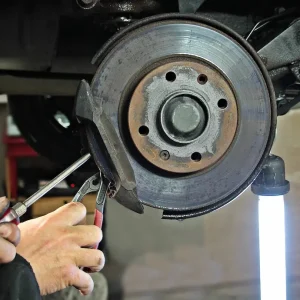The fleet and leasing sector saw a record year of growth in 2014 with fleet sizes up by 7.5%, and while the industry is confident the trend will continue in 2015, there are several factors that could still upset the applecart.
Chief among them is the 7 May General Election, with Gerry Keaney, the British Vehicle Rental and Leasing Association’s chief executive, expecting a period of uncertainty due to the strong chance of another hung parliament.
Political analysts believe the result will be closer than in 2010 and businesses will be anxiously waiting to see how the eventual Government will look to implement the required austerity packages of tax measures and spending cuts, as well as hear what fleet-specific steps it will take.
Top of the agenda could be changes to the CO2-based company car benefit-in-kind tax regime amid well-documented air quality concerns not helped by the popularity of diesel vehicles. However, with the current system being simple to operate and easily understood, the Association of Car Fleet Operators is urging caution in respect of any wholesale changes.
John Pryor, ACFO chairman, says the organisation will continue to work closely with Government departments and promote its members’ views and concerns.
Big year for used vehicle market
Residual value experts Glass’s is predicting 2015 will be the most significant year since the recession for the used vehicle market, and is also expecting the General Election to have an impact.
Rupert Pontin, Glass’s head of valuations, explains: “Like any major national event, [the General Election] will have a dampening effect on used car sales, especially as the result looks uncertain at this distance.
“Immediately afterwards, whichever stripe of major party gains power, there is likely to be a new round of austerity measures and also tax increases, damaging both spending power and consumer confidence.”
Fleets can expect an increase in used vehicle supply this year, after tracking a supply increase of between 1% and 1.5% every month over the past few months of 2014.
Pontin says: “The increase in supply is set to continue during the rest of the year, having an overall downward effect on prices.
“For a long time, we have been in a low-supply situation against a gradually improving macroeconomic backdrop, but that cycle has started to come to an end in recent months and that change will characterise 2015.
“Our longer-term forecast is that all of these factors will continue to take even greater effect in 2016, with even more pressure on prices through reduced demand and increased supply.”
But Pontin said there was unlikely to be a similar scenario in the new car market.
“Here, we expect sales to stay strong, simply because manufacturers need to ensure that factories continue working as close to capacity as possible and will offer finance to make sure this happens.
“However, later in the year, we believe that it is likely the deposit levels required for these finance deals will start to fall in response to macroeconomic effects.”
The BVRLA echoed Glass’s view, expressing concerns that continued growth in new registrations and aggressively priced retail personal contract purchase (PCP) offers could put pressure on used vehicle demand or create an oversupply for certain used models.
However, the BVRLA said it was confident the industry could meet the challenge with a greater use of technology and market data within the remarketing process to avoid peaks and troughs in supply.
Spotlight on grey fleet
The recent Autumn Statement signalled the necessity for a further tightening of public sector finances, and in that respect ‘grey fleet’ vehicles could be in the spotlight this year.
ACFO’s Pryor says: “All employers should analyse whether paying employees to drive their own cars on business delivers value for money, while also acknowledging compliance issues, the age of such vehicles – typically older than fleet vehicles – and whether they are serviced, maintained and repaired as well as company-provided vehicles.”





